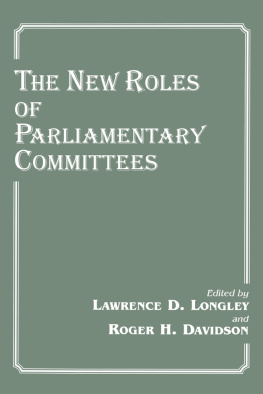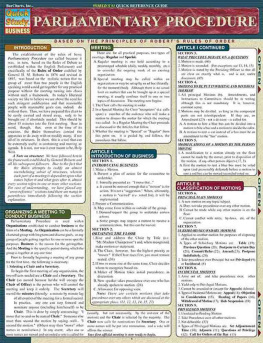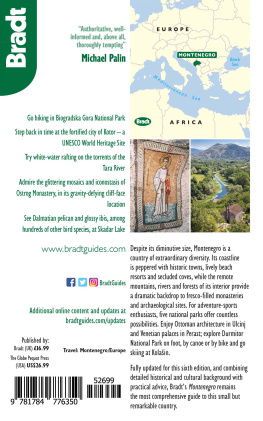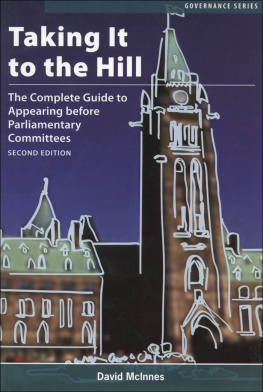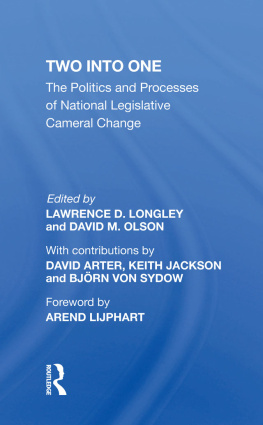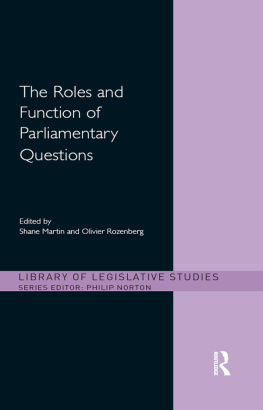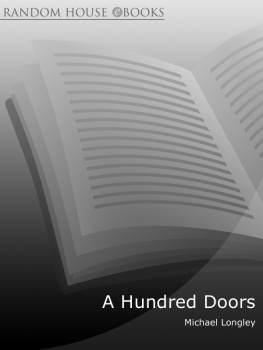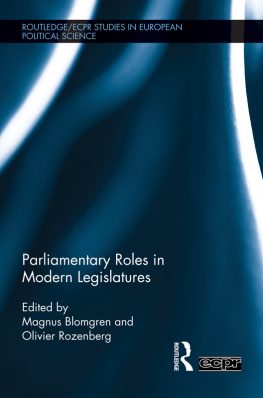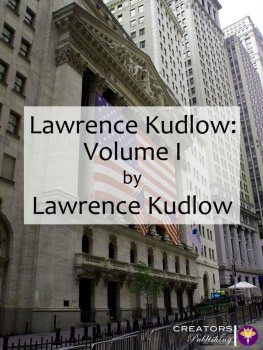THE NEW ROLES OF
PARLIAMENTARY COMMITTEES
BOOKS OF RELATED INTEREST
THE LIBRARY OF LEGISLATIVE STUDIES
ISSN 14609649
A series of new and recent books exploring the role of legislatures in contemporary political systems. The volumes typically draw together a team of country specialists to provide in-depth analysis.
General Editor: Philip Norton
Parliaments in Contemporary Western Europe
edited by Philip Norton
Volume 1: Parliaments and Governments in Western Europe
Volume 2: Parliaments and Pressure Groups in Western Europe
Volume 3: Parliaments and Citizens in Western Europe
Conscience and Parliament
edited by Philip Cowley
Members of Parliament in Western Europe: Roles and Behaviour
edited by Wolfgang C. Mller and Thomas Saalfeld
National Parliaments and the European Union
edited by Philip Norton
The New Parliaments of Central and Eastern Europe
edited by David M. Olson and Philip Norton
THE NEW ROLES OF
PARLIAMENTARY COMMITTEES
edited by
LAWRENCE D. LONGLEY and
ROGER H. DAVIDSON
FRANK CASS
LONDON PORTLAND, OR.
First published in 1998 in Great Britain by
FRANK CASS AND COMPANY LIMITED
2 Park Square, Milton Park, Abingdon, Oxon, OX 14 4RN
and in the United States of America by
FRANK CASS
270 Madison Ave, New York NY 10016
Transferred to Digital Printing 2005
Copyright 1998 Frank Cass & Co. Ltd
Website: http://www.frankcass.com
British Library Cataloguing in Publication Data
The new roles of parliamentary committees
1. Legislative bodies Committees 2. Parliamentary practice
I. Longley, Lawrence D. (Lawrence Douglas), 1939
II. Davidson, Roger H.
328.365
ISBN 0 7146 4891 4 (hbk)
ISBN 0 7146 4442 0(pbk)
ISSN 14609649
Library of Congress Cataloging-in-Publication Data
The new roles of parliamentary committees / edited by Lawrence D. Longley and Roger H. Davidson.
p. cm. (The library of legislative studies)
Includes index.
ISBN 07146-48914 (hardcover). ISBN 07146-44420 (pbk.)
1. Legislative bodies-Committees. 2. Comparative government.
I. Longley, Lawrence D. II. Davidson, Roger H. III. Series.
JF533.N48 19989813228
328.365-dc21CIP
This group of studies first appeared in a Special Issue on The New Roles of Parliamentary Committees of the Journal of Legislative Studies (ISSN 13572334) 4/1 (Spring 1998) published by Frank Cass
All rights reserved. No part of this publication may be reproduced, stored in a retrieval system, or transmitted in any form, or by any means, electronic, mechanical, photocopying, recording or otherwise without the prior permission of Frank Cass and Company Limited.
Parliamentary Committees: Changing Perspectives on Changing Institutions
LAWRENCE D. LONGLEY and ROGER H. DAVIDSON
Parliaments, which according to the then prevalent scholarly literature were expected to decline in significance in the decades of the 1960s and 1970s, actually have developed new and vital political roles and, in recent decades, have innovated in their institutional structure most recurrently in their newly organised or invigorated parliamentary committees. This is in striking contrast to the seeming antipathy between a vigorous committee system and traditional parliamentary government. There has been a growth of the centrality of committees, not only in a few parliaments, but as a global phenomenon. Even as newly democratic parliaments throughout the world experiment with more elaborate committee structures, those with older, highly developed committee systems are reaching for more varied and flexible alternatives. In short, parliamentary committees have emerged as vibrant and central institutions of democratic parliaments of todays world and have begun to define new and changing roles for themselves. This publication in its entirety is devoted to the study and evaluation of these important and still emergent parliamentary developments to an understanding of the new roles of parliamentary committees in the quest for effective parliamentary influence in and contribution to democratic government.
As legislative scholars declare proudly, we are living in the age of parliaments.
Parliamentary committees have been major loci of innovation in the processes and structures of parliaments. As Mattson and Strm have argued in their seminal review of parliamentary committees,
This development of central roles of parliamentary committees is particularly astonishing as it has occurred in both separation-of-powers systems, where it might be seen as the natural result of efforts by legislative bodies to develop institutional tools and resources to strengthen their hands in competing with executives, and in parliamentary systems. If active parliamentary committees come naturally to separation-of-powers systems, such is not the case with parliamentary government systems. Assertive committees in parliamentary systems potentially threaten the primacy of governments, executives and, not least, legislative and partisan leaders in the chamber itself all antithetical to the principle of unified political leadership and responsibility central to classical parliamentary government. In short, active parliamentary committees fit well into separation-of-powers systems and are inherently at tension with the classical model of parliamentary government.
This world-wide growth of parliamentary committees is a fairly recent development. A hundred years ago, or even 30 years ago, the situation was absolutely different. Parliamentary committees at that time generally did not matter globally, although they were certainly important in the American Congress. The Mother of Parliaments, the British Parliament, has always Although the British Parliament has historically resisted embracing the new roles of parliamentary committees pioneered elsewhere, there have recently been noteworthy and significant innovations and expansions in the powers of British parliamentary committees.
Initially, many democratic parliaments were modelled according to the British pattern and reflected the Westminster systems tradition of weak parliamentary committees.
The focus on parliamentary committees was, in the political science tradition of the past 50 years, almost exclusively an American one. The US Congress was by far the strongest case of the use of parliamentary committees as Malcolm Shaw argues in this publication and elsewhere.
In terms of its reliance upon committees, the United States Congress surely occupies one end of the spectrum. Committees have played a central part in its This wish by parliaments to enhance their ability to oversee, or scrutinise, the government and ministries is a major perhaps even the central factor explaining the growing use of committees in parliamentary democracies.
The rigidity of jurisdictions characteristic of standing committee systems can prove a liability in todays complex, fast-moving world. Definitions of jurisdictional metes and bounds eventually grow into the equivalents of jealously guarded land rights, in which boundaries are stoutly defended and trespassers vigorously fought off. Yet evolving policy challenges rarely fit neatly into jurisdictional definitions that were codified years or even decades earlier. Cross-cutting issues involving, for example, the environment, trade, health and welfare demand integrated deliberation and oversight. Even committee systems designed to parallel ministerial agencies are vulnerable to this defect. Mature committee systems, such as those in the US Congress, are increasingly challenged by alternative organisational entities multi-committee arrangements, partisan or multi-party task forces, leadership committees, or even high-level summit bargaining between legislative leaders and the executive branch. In sum, even as democratic parliaments throughout the world experiment with more elaborate committee structures, those with older, highly developed committee systems are reaching for more varied and flexible alternatives.


